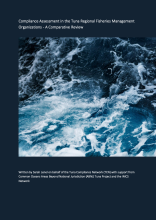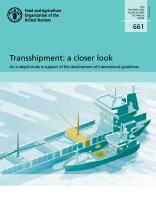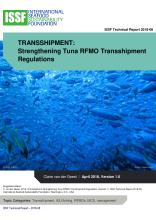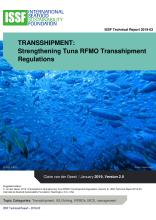Compliance Assessment in the Tuna Regional Fisheries Management Organizations - A Comparative Review
The assessment of the implementation of, and compliance with, agreed obligations is a key component of the internationally accepted fisheries governance regime. To fulfill the objectives of the tuna RFMOs, participants must implement and comply with a range of RFMO obligations. All the tuna RFMOs have recognized a need for a structured process to assess the implementation of, and compliance with, obligations and have adopted compliance assessment processes. Compliance assessment processes provide a framework to assess implementation and compliance in a structured and consistent way and may identify trends in compliance over time. Compliance assessment processes seek to improve the performance of an RFMO and to support participants to better meet their obligations.
Language




